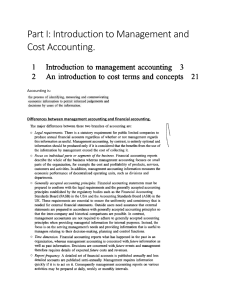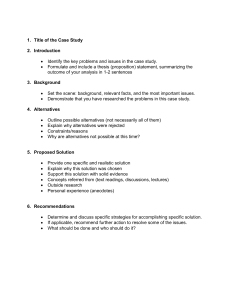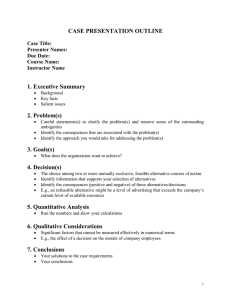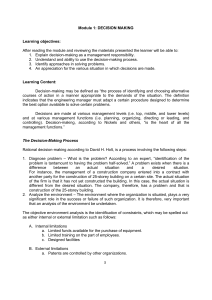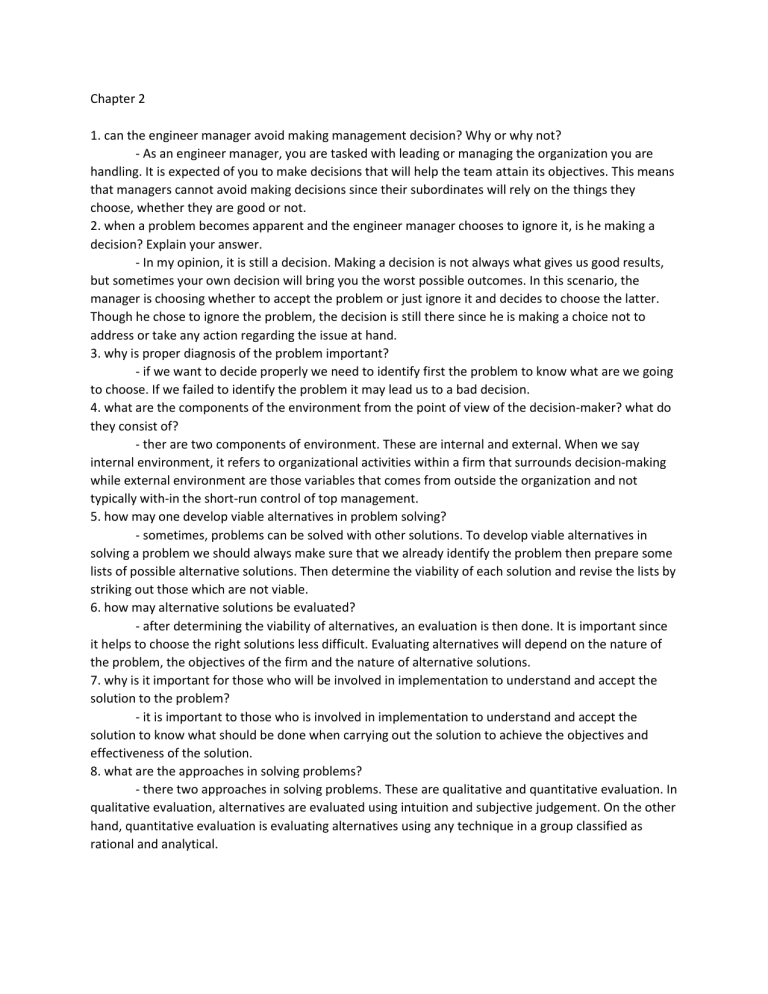
Chapter 2 1. can the engineer manager avoid making management decision? Why or why not? - As an engineer manager, you are tasked with leading or managing the organization you are handling. It is expected of you to make decisions that will help the team attain its objectives. This means that managers cannot avoid making decisions since their subordinates will rely on the things they choose, whether they are good or not. 2. when a problem becomes apparent and the engineer manager chooses to ignore it, is he making a decision? Explain your answer. - In my opinion, it is still a decision. Making a decision is not always what gives us good results, but sometimes your own decision will bring you the worst possible outcomes. In this scenario, the manager is choosing whether to accept the problem or just ignore it and decides to choose the latter. Though he chose to ignore the problem, the decision is still there since he is making a choice not to address or take any action regarding the issue at hand. 3. why is proper diagnosis of the problem important? - if we want to decide properly we need to identify first the problem to know what are we going to choose. If we failed to identify the problem it may lead us to a bad decision. 4. what are the components of the environment from the point of view of the decision-maker? what do they consist of? - ther are two components of environment. These are internal and external. When we say internal environment, it refers to organizational activities within a firm that surrounds decision-making while external environment are those variables that comes from outside the organization and not typically with-in the short-run control of top management. 5. how may one develop viable alternatives in problem solving? - sometimes, problems can be solved with other solutions. To develop viable alternatives in solving a problem we should always make sure that we already identify the problem then prepare some lists of possible alternative solutions. Then determine the viability of each solution and revise the lists by striking out those which are not viable. 6. how may alternative solutions be evaluated? - after determining the viability of alternatives, an evaluation is then done. It is important since it helps to choose the right solutions less difficult. Evaluating alternatives will depend on the nature of the problem, the objectives of the firm and the nature of alternative solutions. 7. why is it important for those who will be involved in implementation to understand and accept the solution to the problem? - it is important to those who is involved in implementation to understand and accept the solution to know what should be done when carrying out the solution to achieve the objectives and effectiveness of the solution. 8. what are the approaches in solving problems? - there two approaches in solving problems. These are qualitative and quantitative evaluation. In qualitative evaluation, alternatives are evaluated using intuition and subjective judgement. On the other hand, quantitative evaluation is evaluating alternatives using any technique in a group classified as rational and analytical. 9. what quantitative techniques are useful in decision-making? -there are lot of quantitative techniques that are useful in making decisions. These are inventory models, queuing theory, network models, forecasting, regression analysis, simulation, linear programming, sampling theory and statistical decision theory. 10. what is the purpose of Bayesian analysis? - the purpose of Bayesian analysis is to revise and update the initial assessments of the event probabilities generated by the alternative solutions.
